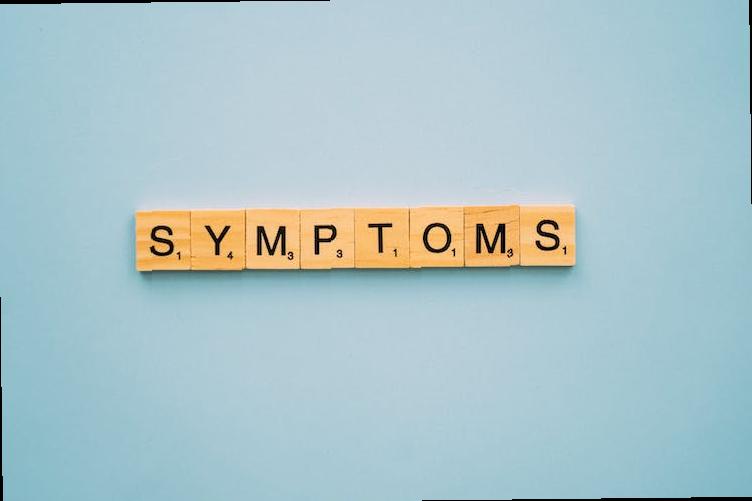Uncategorized
Mdma Withdrawal Symptoms
Understanding the symptoms associated with MDMA withdrawal is crucial for individuals who have chosen to discontinue the use of this substance. Although MDMA is primarily known for its euphoric effects, it is important to recognize that regular or excessive use can lead to withdrawal symptoms when its use is ceased. These symptoms, while temporary, can cause physical and psychological distress, making it essential to navigate through this phase of recovery with knowledge and support.
During MDMA withdrawal, individuals may experience a range of physical and psychological symptoms. Physically, some common symptoms include fatigue, headaches, and changes in appetite. While these symptoms can be uncomfortable, it is vital to remember that they are transitory and will gradually subside with time. On the psychological front, individuals may encounter symptoms such as mood swings, anxiety, and irritability. Understanding that these symptoms are part of the body’s adjustment process can help individuals cope more effectively during this transitional period.
Physical Symptoms
Physical symptoms can be experienced during MDMA withdrawal. These symptoms may manifest in various ways and can have an impact on the individual’s overall well-being. Some common physical symptoms associated with MDMA withdrawal include fatigue, muscle aches, headaches, and changes in appetite.
Fatigue is a common physical symptom experienced by individuals going through MDMA withdrawal. This can manifest as an overall feeling of tiredness or a lack of energy. It is important for individuals to ensure they get plenty of rest and engage in activities that promote relaxation and rejuvenation.
Muscle aches are another physical symptom associated with MDMA withdrawal. These aches can occur in different areas of the body and may range from mild discomfort to more severe pain. Engaging in gentle stretching exercises or taking warm baths may help alleviate these muscle aches.
Headaches are also commonly reported during MDMA withdrawal. These headaches may present as mild to moderate pain and can be accompanied by sensitivity to light or sound. It is recommended for individuals to stay hydrated and practice relaxation techniques to help manage these headaches.
Changes in appetite are another physical symptom that individuals may experience during MDMA withdrawal. Some individuals may notice a decrease in appetite, while others may experience an increase. It is essential to listen to one’s body and maintain a balanced diet to ensure proper nutrition during this time.

It is important to note that everyone’s experience with MDMA withdrawal and its physical symptoms may vary. If individuals are concerned about these symptoms or have any questions, it is always advisable to consult a healthcare professional for guidance and support.
Emotional Symptoms
Emotional symptoms can often arise during MDMA withdrawal. When individuals stop using MDMA, they may experience a range of emotional changes as their brain chemistry starts to rebalance. These emotional symptoms can include mood swings, depression, anxiety, irritability, and even feelings of emptiness.
One common emotional symptom of MDMA withdrawal is mood swings. The abrupt discontinuation of MDMA can destabilize the brain’s natural reward pathways, causing individuals to experience significant shifts in their emotional state. This can result in sudden and intense changes in mood, where one moment individuals may feel overly happy or euphoric, and the next moment they may feel sad or irritable.
Depression is another emotional symptom that can occur during MDMA withdrawal. MDMA is known to stimulate the release of serotonin, a neurotransmitter responsible for regulating mood. When individuals stop using MDMA, their serotonin levels can plummet, leading to feelings of sadness, hopelessness, and a lack of interest in activities that were once enjoyable.

Anxiety is also a common emotional symptom experienced during MDMA withdrawal. The sudden withdrawal from MDMA can cause individuals to feel anxious and overwhelmed. They may experience racing thoughts, physical tension, and difficulty relaxing or sleeping. These anxiety symptoms can be quite distressing and may interfere with a person’s daily life.
Irritability is another emotional symptom that often accompanies MDMA withdrawal. The fluctuations in brain chemistry can make individuals more sensitive and easily frustrated. They may have a shorter temper and be more prone to arguments or conflicts. It is important to note that this irritability is a temporary symptom that tends to resolve as the brain chemistry stabilizes.
Lastly, some individuals may experience feelings of emptiness during MDMA withdrawal. MDMA is known for its empathogenic effects, which can increase feelings of emotional connection and contentment. When individuals stop using MDMA, they may temporarily feel a sense of emptiness or loneliness, as these feelings were amplified while using the drug.
It is crucial for individuals experiencing emotional symptoms during MDMA withdrawal to seek support from healthcare professionals. They can provide guidance, support, and potentially recommend therapy or medications to help individuals navigate through these challenges. It is essential to remember that these emotional symptoms are temporary and can be managed with the right support.
Cognitive Symptoms
Cognitive symptoms, in the context of MDMA withdrawal, refer to changes in cognitive functioning that individuals may experience after discontinuing MDMA use. These symptoms can manifest as difficulties with thinking, memory, and concentration. It is important to note that these cognitive issues are temporary and typically resolve with time.
During MDMA withdrawal, some individuals may experience difficulties with cognitive function, such as impaired attention and memory. This might result in difficulties focusing on tasks, recalling information, or staying organized. These symptoms can be frustrating and may affect daily activities, but it is essential to remember that they are transient and will improve over time.
It is worth noting that the severity and duration of cognitive symptoms may vary from person to person. Factors such as the frequency and duration of MDMA use, individual physiology, and other co-existing conditions can influence the presence and intensity of these symptoms. However, as the body adjusts and recovers from MDMA withdrawal, cognitive functioning typically returns to baseline levels.
Overall, understanding and recognizing cognitive symptoms during MDMA withdrawal is important for individuals who have chosen to discontinue MDMA use. These symptoms are temporary and part of the body’s readjustment process. By staying patient and allowing the body time to heal, individuals can expect their cognitive functioning to gradually improve.

Sleep Disturbances
Sleep disturbances can occur as a symptom of MDMA withdrawal. During this time, individuals may experience difficulties falling asleep, staying asleep, or having restful sleep. These sleep disturbances can be frustrating and impact overall well-being.
MDMA, also known as ecstasy or molly, is a recreational drug that affects the release of neurotransmitters in the brain, including serotonin. When MDMA use is discontinued, it can disrupt the balance of these neurotransmitters, leading to various withdrawal symptoms, including sleep disturbances.
The exact mechanisms behind MDMA-related sleep disturbances are not completely understood. However, it is believed that the disruption of serotonin, a neurotransmitter involved in the regulation of sleep, may play a role. Serotonin helps regulate the sleep-wake cycle, and alterations in its levels can lead to sleep problems.
It is important to note that sleep disturbances during MDMA withdrawal are temporary and tend to resolve as the body adjusts to the absence of the drug. However, the duration and intensity of these sleep disturbances can vary from person to person, and it may take time for sleep patterns to return to normal.
If you are experiencing sleep disturbances during MDMA withdrawal, it is recommended to maintain a regular sleep schedule, create a relaxing bedtime routine, and avoid stimulating substances like caffeine or nicotine before bed. If the sleep disturbances persist or worsen, it is advisable to consult a healthcare professional for further guidance and support.

Drug Cravings
Drug cravings, specifically in the context of MDMA withdrawal, refer to the intense desires or urges individuals may experience to use MDMA again after they have stopped or reduced their use. These cravings can be a challenging aspect of withdrawal and may contribute to the difficulty of abstaining from MDMA.
During MDMA withdrawal, individuals may experience a range of symptoms, which can include emotional and psychological disturbances. Drug cravings often emerge as a result of the brain’s adaptation to MDMA use and the subsequent disruption of normal neurochemical processes. The brain grows accustomed to the presence of MDMA and its effects, leading to a desire for the drug to recapture those feelings of euphoria and heightened sociability.

Cravings for MDMA can be triggered by various cues or reminders associated with past drug use, such as people, places, or certain situations that were typically connected to MDMA consumption. These cues can create a strong association between the environment and the drug’s pleasurable effects, leading to an urge to use MDMA in similar circumstances.
It is important to note that drug cravings are a common component of withdrawal from many substances. However, in the context of MDMA withdrawal, managing cravings may require tailored strategies to address the specific challenges associated with this particular drug.
Overall, drug cravings during MDMA withdrawal can be a significant hurdle for individuals in their journey toward recovery. By understanding the factors contributing to these cravings and implementing appropriate strategies to manage them, individuals can increase their chances of successfully navigating the withdrawal process.
Recapitulation
In conclusion, understanding the symptoms of MDMA withdrawal is crucial for individuals who have been using this substance for medical purposes. While MDMA is primarily utilized to treat certain mental health conditions, such as PTSD, it is essential to be aware of the potential withdrawal symptoms that can occur when discontinuing its use. Withdrawal symptoms can vary from person to person, but some common experiences may include fatigue, anxiety, depression, and changes in mood or appetite. By being knowledgeable about these symptoms, medical professionals can provide appropriate support and guidance to patients who are navigating MDMA withdrawal.
Ultimately, recognizing and addressing MDMA withdrawal symptoms is an important aspect of patient care and treatment. It allows medical professionals to better understand the impact of this medication and develop effective strategies to minimize potential discomfort. Moreover, by closely monitoring patients during the withdrawal process, healthcare providers can optimize the overall well-being and safety of individuals as they transition away from MDMA. Through continued research and enhanced awareness, we can improve our understanding of MDMA withdrawal and strive to develop even more effective interventions and support systems for those who require medical assistance with this process.

